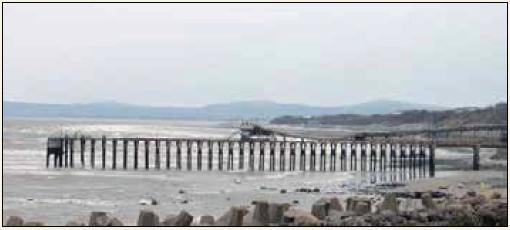201351 Weather terminology rains confusion
Official report edited from MAIB 8/2013
A small coastal cargo vessel had been loading limestone at an exposed, tide-constrained berth when the weather, as predicted, continued to worsen. The Master, after listening to the weather predictions, decided to finish loading and then put to sea. However, strong winds and large waves overwhelmed the vessel while it was manoeuvring away from the jetty, causing it to be driven onto the shore. The vessel was later declared a constructive total loss.
Although several contributing factors were at play in this casualty, one of particular interest was the Met Office’s use of qualifying terms in describing the arrival of weather patterns and winds in their weather forecasts (see below). Although these terms are defined, quantitatively, in Admiralty List of Radio Signals they are not part of the international meteorological lexicon. This accident demonstrates that they have the potential to cause misunderstanding; in this case the Master, a non-English mother tongue speaker, although aware that the weather was likely to deteriorate, was confused by the terminology used in UK maritime weather forecasts. He did not appreciate the meaning of the term ‘imminent’ and, as a consequence, did not fully comprehend how quickly the bad weather was forecast to arrive.

Lesson learned
The official MAIB report states that it would be beneficial to make warnings about severe weather explicit and self-explanatory. Watchkeepers should not be left in doubt or need to look up definitions.

